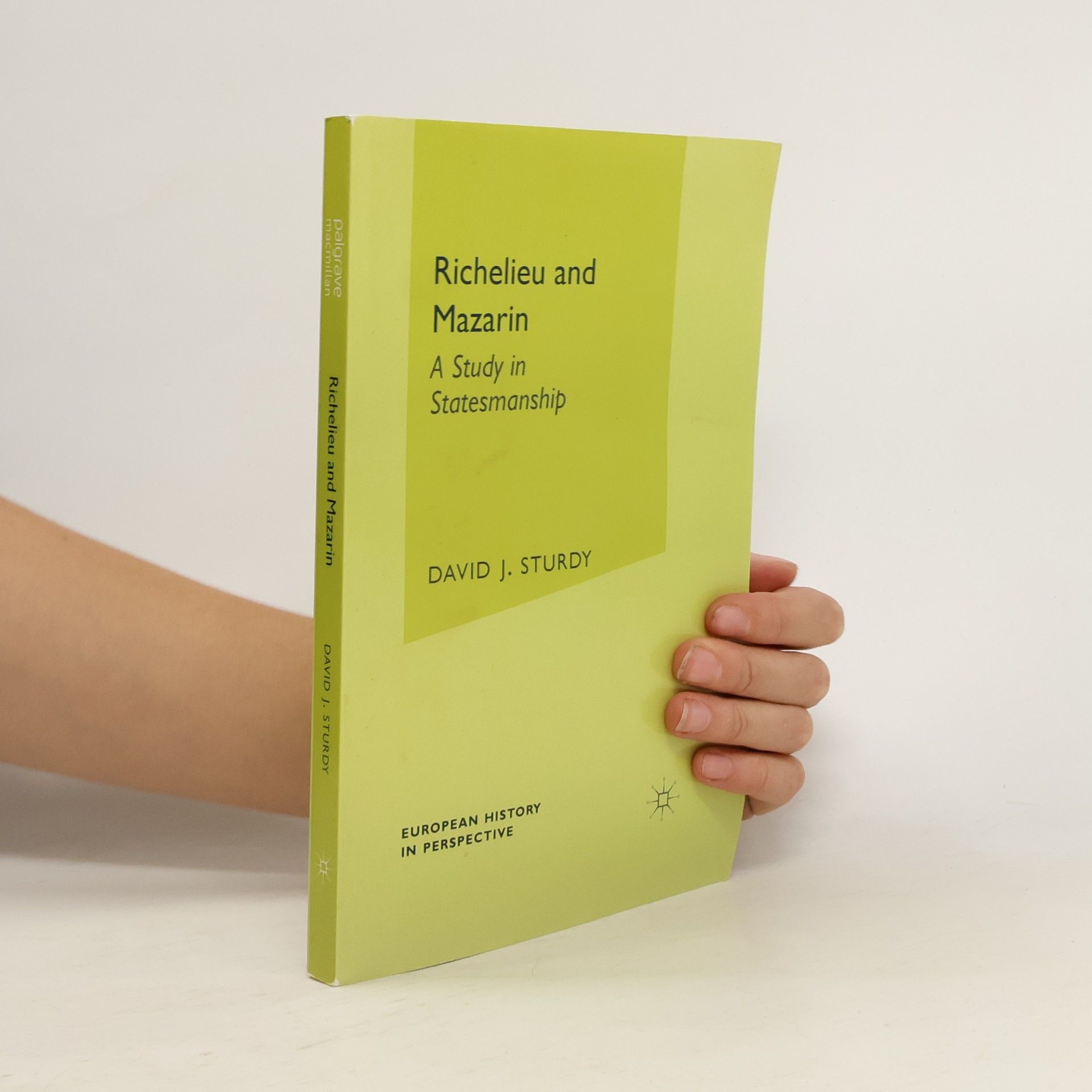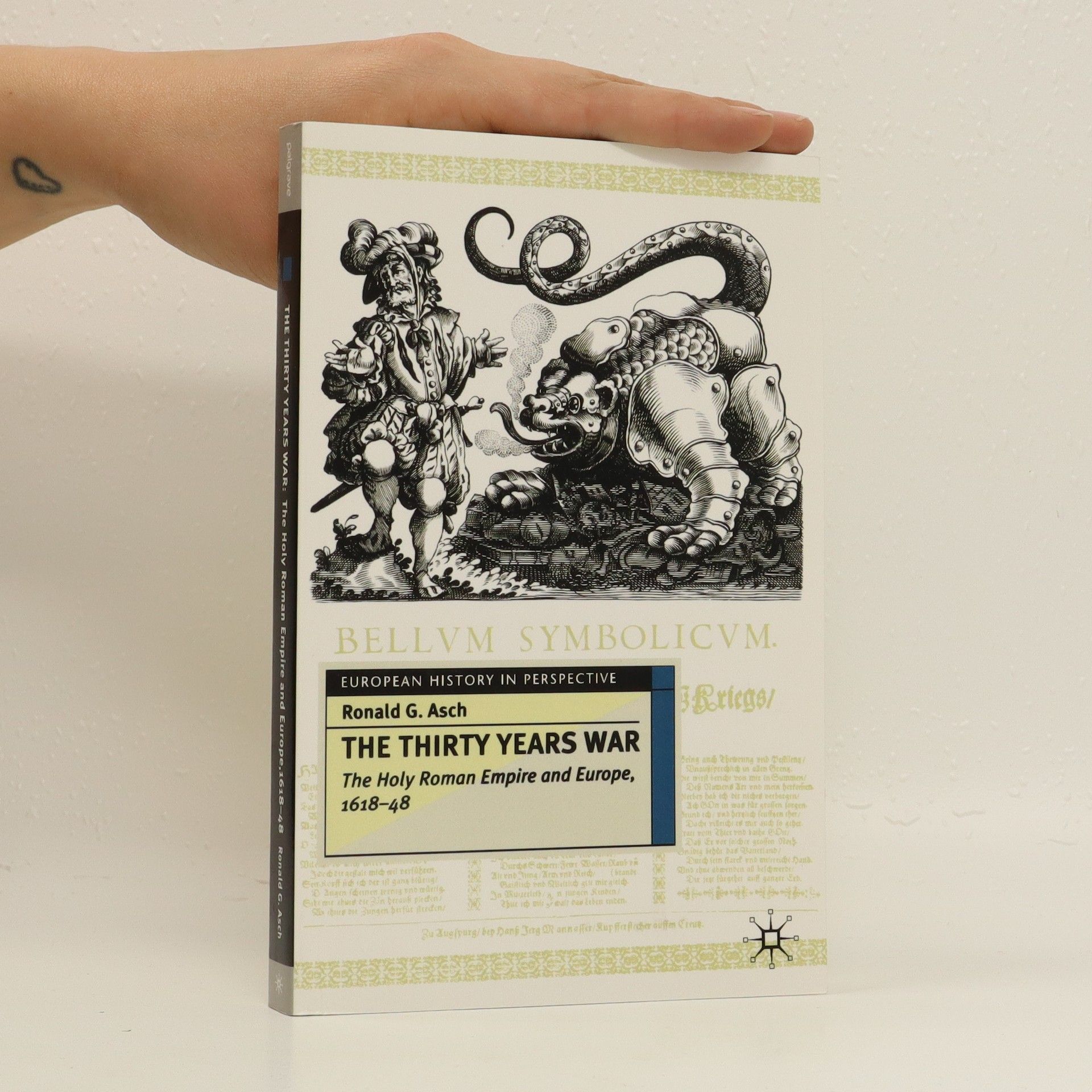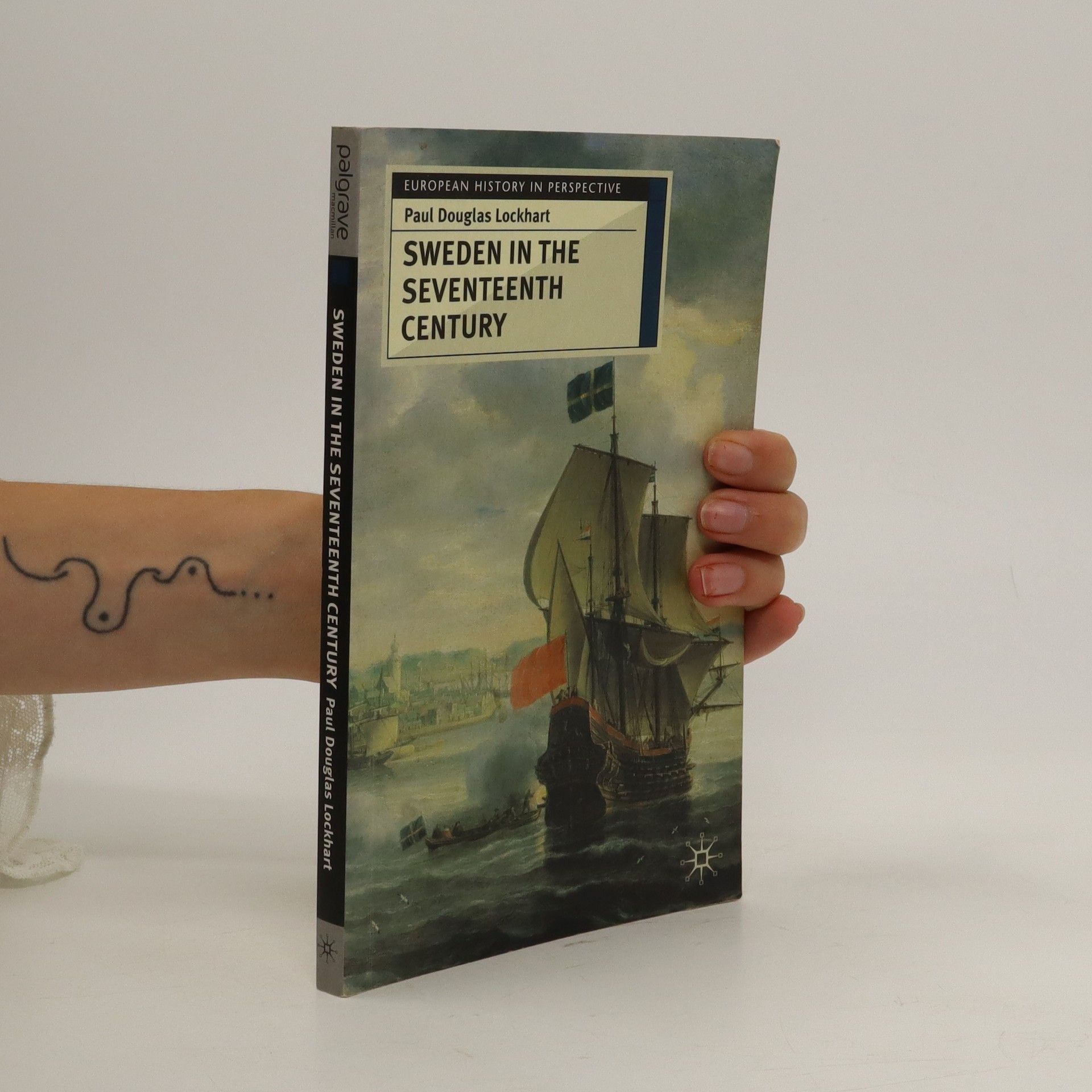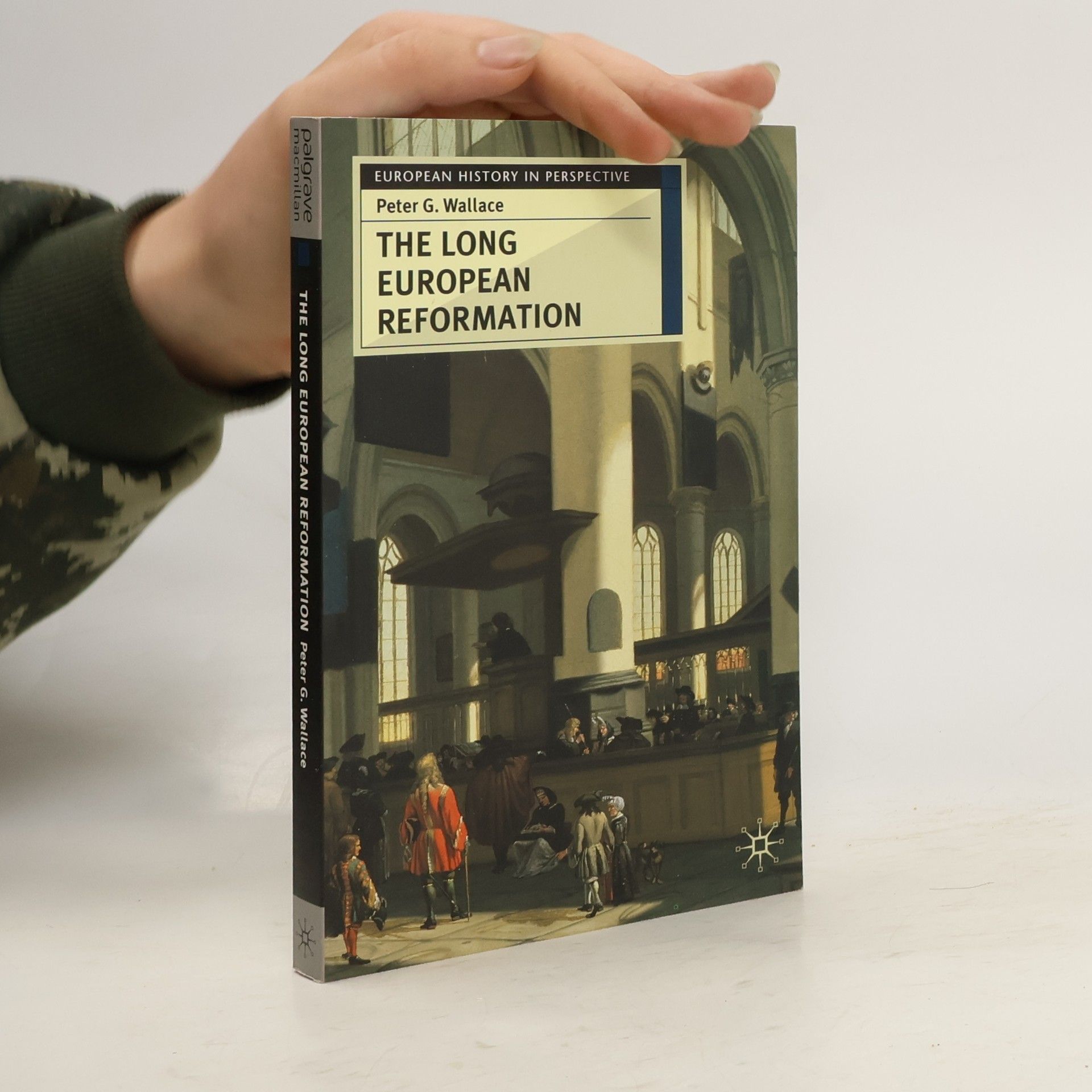Historians have tried time and again to identify the central issues of the conflict which devastated Europe between 1618 and 1648. The Thirty Years War by Ronald G. Asch puts the religious and constitutional struggle in the Holy Roman Empire squarely back into the centre of events. However, other issues are not neglected. Thus the problems of war finance are shown to be an important key to the interaction between inter-state and domestic conflicts during the war. Equally confessional tensions are analysed as a decisive factor linking international and domestic disputes, and the reader is provided with a succinct narrative account concentrating on the major turning points of the war.
Storia Europea in Prospettiva Serie
Questa serie approfondisce temi cruciali della storia europea, offrendo sintesi concise ma illuminanti. Ogni volume esplora eventi e processi significativi che hanno plasmato il continente, fornendo una chiara comprensione di sviluppi complessi. Rappresenta una risorsa ideale per i lettori che cercano riassunti avvincenti del ricco passato dell'Europa. Curata da esperti, questa raccolta si rivolge sia a studenti che a lettori generici interessati al contesto storico.






Ordine di lettura consigliato
Drawing on recent research, David Sturdy presents a concise and comparative analysis of the private and public careers of Richelieu and Mazarin. Several chapters are devoted to such central themes as the international government of France and the conduct of foreign policy, while others deal with the political strategies of the two men, the relations between the ministers and the crown, and the patronage which they exercised. The study concludes with an assessment of the historical significance of Richelieu and Mazarin.
Governing Tsarist Russia
- 256pagine
- 9 ore di lettura
The Tsarist Empire posed unique problems to its rulers. Peter Waldron examines the challenges that faced them in terms of geography, culture, finance and military power, analysing the sources of the Russian Empire's strength and the reasons why the tsars were able to maintain their unlimited power for so long.
The causes of war have often overshadowed the causes of peace, yet they are closely intertwined. Notable discussions of war arose during the long periods of peace among European great powers from 1815-1854 and again from 1871-1914, with significant crises in the Near East in 1878 and 1887-88. The latter period saw fatalistic and aggressive rhetoric in Berlin and Vienna, foreshadowing the tensions of 1914. Analyzing the best methods to defend and advance national interests often sheds more light on why wars were avoided than studies of the Holy Alliance or the Concert of Europe. The Concert was most active post-war or when the powers recognized that conflict could be too costly and unpredictable. For instance, Russia nearly reached Constantinople but withdrew due to the implications of controlling the Straits. Similarly, Habsburg ambitions were often tempered by financial constraints. This insightful examination will appeal to those seeking to understand European state relations in the nineteenth century, focusing on why major wars occurred or were averted, particularly in the context of the events leading up to 1914.
The Longman Companion to Nazi Germany
- 286pagine
- 11 ore di lettura
The book offers an in-depth exploration of Germany from 1918 to 1945, encompassing the Weimar Republic, the rise of Nazism, and the Third Reich. It provides detailed insights into the political landscape, including the Nazi party and police state, as well as the economic, social, and cultural aspects of the era. Key topics such as diplomacy, rearmament, and the Holocaust are thoroughly examined. Supplementary materials like biographies, a glossary, and an annotated bibliography enhance its value as a comprehensive guide to Nazi Germany.
By turns radical, uncertain, ambitious, and autocratic, Mikhail Gorbachev in his bid to reform the Soviet Union has shaped the contemporary world. In 1985, he set out to modernize the Soviet state and revive his Communist Party. Instead, by the end of 1991, the USSR had fragmented and the Party was banned. Institutions which had survived for 70 years, notwithstanding Stalin's murderous purges and the Nazi war machine, proved unable to survive his well-meant reforms. This is a concise and lively introduction to the man and his times, setting them in the context of a decaying and ramshackle empire and an ideology long since betrayed by its professed followers. Simply and clearly, it follows Gorbachev's increasingly desperate attempts to control the forces he unleashed and hold together a state whose days were over. Ultimately, Gorbachev failed yet, as this study concludes, from his revolution arose an historic opportunity to redefine Russia's place in the world and break with a centuries-long autocratic tradition.
The history of Sweden in the seventeenth century is perhaps one of the most remarkable political success stories of early modern Europe. Little more than a century after achieving independence from Denmark, Sweden - an impoverished and sparsely-populated state - had defeated all of its most fearsome enemies and was ranked amongst the great powers of Europe. In this book, which incorporates the latest research on the subject, Paul Douglas Lockhart: - surveys the political, diplomatic, economic, social and cultural history of the country, from the beginnings of its career as an empire to its decline at the end of the seventeenth century - examines the mechanisms that helped Sweden to achieve the status of a great power, and the reasons for its eventual downfall - emphasises the interplay between social structure, constitutional development, and military necessity Clear and well-written, Lockhart's text is essential reading for all those with an interest in the fascinating history of early modern Sweden.
The Long European Reformation
- 308pagine
- 11 ore di lettura
Peter G. Wallace interweaves the Reformation into the transformations of political institutions, socio-economic structures, gender relations, and cultural values in Europe. The revised second edition now incorporates the latest research, as well as a new chapter on the Reformation and Islam, expanded discussion of gender issues, and a glossary.
The Long European Reformation
Religion, Political Conflict and the Search for Confirmity, 1350-1750
- 240pagine
- 9 ore di lettura
Peter G. Wallace interweaves the Reformation into the transformations of political institutions, socioeconomic structures, gender relations, and cultural values in early modern Europe. In approaching the European Reformation as a long-term process, Wallace argues that the classic sixteenth-century religious struggles with the resolutions proposed by reformers such as Luther, were not fully realized for most Christians until the early eighteenth century.
Lenin
- 272pagine
- 10 ore di lettura
A political and intellectual biographical study of Lenin which focuses on those aspects of his thought and political activities that had a bearing on the accession of the Bolsheviks to power in Russia in 1917 and the creation of the Soviet state. schovat popis
This is a study of the defining aspects of the reign of Louis XIV. The nature of the French monarchy, methods of government, Louis's relationship to his subjects and to the churches, the organization of cultural life, and France's relations with the rest of Europe are all considered. The book relates Louis and his regime to the longer-term movements of French history and to some of the wider historical forces at work in 17th-century Europe. It raises past and present historiographical controversies surrounding Louis XIV and indicates some of the major problems in interpretation which still confront historians.
The Dutch Republic emerged from the epic revolt of the Netherlands against Spanish rule in the late 16th century and became a major political force in Europe. This study shows how this new state was able to achieve such successes despite the burden of the Eighty Years War with Spain.
Sweden in the Seventeenth Century
- 178pagine
- 7 ore di lettura
The seventeenth century marks a remarkable transformation for Sweden, evolving from a poor, sparsely populated nation into a formidable European power. Within just over a hundred years of gaining independence from Denmark, Sweden successfully vanquished its major adversaries, establishing itself as a key player in early modern European politics. This period highlights Sweden's significant military and diplomatic achievements, showcasing a compelling narrative of resilience and strategic prowess.
This book explores the long-term reasons for the demise of Imperial Russia, examining the failure of the autocratic state to strengthen its own political position while economic change transformed Russian society.

